After Babel George SteinerAnno Domini George SteinerThree outstanding stories on the theme of war.The three stories bundled in this book are tales about war and love, about “memories keeping their cancerous hold.”Antigones: How the Antigone Legend Has Endured in Western Literature, Art, and Thought George SteinerAccording to Greek legend, Antigone, the daughter of Oedipus, secretly buried her brother in defiance of the order of Creon, king of Thebes. Sentenced to death by Creon, she forestalled him by committing suicide. The theme of the conflict between Antigone and Creon-between the state and the individual, between man and woman, between young and old-has captured the Western imagination for more than 2000 years. George Steiner here examines the far-reaching legacy of this great classical myth. He considers its treatment in Western art, literature, and thought-in drama, poetry, prose, philosophic discourse, political tracts, opera, ballet, film, and even the plastic arts. A study in poetics and in the philosophy of reading, Antigones leads us to look again at the influence the Greek myths exercise on twentieth-century culture.The Death of Tragedy George Steiner""This book is important—and portentous—for if it is true that tragedy is dead, we face a vital cultural loss. . . . The book is bound to start controversy. . . . The very passion and insight with which he writes about the tragedies that have moved him prove that the vision still lives and that words can still enlighten and reveal.""-R.B. Sewall, New York Times Book ReviewErrata: An Examined Life George SteinerGeorge Steiner, one of the great literary minds of our century, here relates the story of his own life and the ways that people, places, and events have colored the central ideas and themes of his work. Brilliant and witty, his memoir reveals Steiner`s thoughts on the meaning of the western tradition and its philosophic and religious premises.Grammars of Creation George SteinerWith his well-known elegance of style and intellectual range, George Steiner here explores the idea of creation in Western thought, literature, religion, and history. In the volume that may fairly be called his magnum opus, Steiner probes deeply into the driving forces of the human spirit, considers our perceptions of Western civilization's lengthening afternoon shadows, and concludes with an eloquent evocation of the endlessness of beginnings.The Idea of Europe: An Essay George SteinerThe extraordinary meditation on Europe by the “brilliantly illuminating” (Alain de Botton) public intellectual
In this remarkable short book, the foremost intellectual of our age brings a lifetime of erudition to bear on a subject that he has grappled with for decades, and whose future is profoundly uncertain.
The Idea of Europe finds George Steiner reckoning with Europe from a number of different angles. “Europe,” he writes, “is the place where Goethe’s garden almost borders on Buchenwald, where the house of Corneille abuts on the market-place in which Joan of Arc was hideously done to death.” It is, in other words, a continent rich with contradiction, whose many tensions—cultural, social, political, economic, and religious—have for centuries conspired to pull it apart, even as it has become more and more unified.
But what lies ahead for a continent whose borders are growing and economic might is strengthening, even as its cultural identity recedes? A continent where, in Steiner’s words, “young Englishmen choose to rank David Beckham high above Shakespeare and Darwin in their list of national treasures”? This is the trajectory that Steiner explores so brilliantly in The Idea of Europe.In Bluebeard's Castle: Some Notes Towards the Redefinition of Culture George Steiner"Four impressive lectures about the culture of recent times (from the French Revolution) and the conceivable culture of times to come. Mr. Steiner's discussion of the break with the traditional literary past (Jewish, Christian, Greek, and Latin) is illuminating and attractively undogmatic. He writes as a man sharing ideas, and his original notions, though scarcely cheerful, have the bracing effect that first-rate thinking always has." -New Yorker "In Bluebeard's Castle is a brief and brilliant book. An intellectual tour de force, it is also a book that should generate a profound excitement and promote a profound unease...like the great culturalists of the past. Steiner uses a dense and plural learning to assess his topic: his book has the outstanding quality of being not simply a reflection on culture, but an embodiment of certain contemporary resources within it. The result is one of the most important books I have read for a very long time."-New SocietyLessons of the Masters George SteinerWhen we talk about education today, we tend to avoid the rhetoric of "mastery," with its erotic and inegalitarian overtones. But the charged personal encounter between master and disciple is precisely what interests George Steiner in this book, a sustained reflection on the infinitely complex and subtle interplay of power, trust, and passions in the most profound sorts of pedagogy. Based on Steiner's Norton Lectures on the art and lore of teaching, Lessons of the Masters evokes a host of exemplary figures, including Socrates and Plato, Jesus and his disciples, Virgil and Dante, Heloise and Abelard, Tycho Brahe and Johann Kepler, the Baal Shem Tov, Confucian and Buddhist sages, Edmund Husserl and Martin Heidegger, Nadia Boulanger, and Knute Rockne.
Pivotal in the unfolding of Western culture are Socrates and Jesus, charismatic masters who left no written teachings, founded no schools. In the efforts of their disciples, in the passion narratives inspired by their deaths, Steiner sees the beginnings of the inward vocabulary, the encoded recognitions of much of our moral, philosophical, and theological idiom. He goes on to consider a diverse array of traditions and disciplines, recurring throughout to three underlying themes: the master's power to exploit his student's dependence and vulnerability; the complementary threat of subversion and betrayal of the mentor by his pupil; and the reciprocal exchange of trust and love, of learning and instruction between master and disciple.
Forcefully written, passionately argued, Lessons of the Masters is itself a masterly testament to the high vocation and perilous risks undertaken by true teacher and learner alike.A Long Saturday: Conversations George Steiner, Laure AdlerGeorge Steiner is one of the preeminent intellectuals of our time. The Washington Post has declared that no one else “writing on literature can match him as polymath and polyglot, and few can equal the verve and eloquence of his writing,” while the New York Times says of his works that “the erudition is almost as extraordinary as the prose: dense, knowing, allusive.” Reading in many languages, celebrating the survival of high culture in the face of modern barbarisms, Steiner probes the ethics of language and literature with unparalleled grace and authority. A Long Saturday offers intimate insight into the questions that have absorbed him throughout his career.
In a stimulating series of conversations, Steiner and journalist Laure Adler discuss a range of topics, including Steiner’s boyhood in Vienna and Paris, his education at the University of Chicago and Harvard, and his early years in academia. Books are a touchstone throughout, but Steiner and Adler’s conversations also range over music, chess, psychoanalysis, the place of Israel in Jewish life, and beyond. Blending thoughts on subjects of broad interest in the humanities—the issue of honoring Richard Wagner and Martin Heidegger in spite of their politics, or Virginia Woolf’s awareness of the novel as a multivocal form, for example—with personal reflections on life and family, Steiner demonstrates why he is considered one of today’s greatest minds. Revealing and exhilarating, A Long Saturday invites readers to pull up a chair and listen in on a conversation with a master.Martin Heidegger George SteinerWith characteristic lucidity and style, Steiner makes Heidegger's immensely difficult body of work accessible to the general reader. In a new introduction, Steiner addresses language and philosophy and the rise of Nazism.
"It would be hard to imagine a better introduction to the work of philosopher Martin Heidegger."—George Kateb, The New RepublicMy Unwritten Books George SteinerBy one of the world's foremost literary critics, George Steiner's My Unwritten Books meditates upon seven books he had long had in mind to write, but never did. Massively erudite, the essays are also brave, unflinching, and wholly personal.
In this fiercely original and audacious work, George Steiner tells of seven books which he did not write. Because intimacies and indiscretions were too threatening. Because the topic brought too much pain. Because its emotional or intellectual challenge proved beyond his capacities.
The actual themes range widely and defy conventional taboos: the torment of the gifted when they live among—when they confront—the very great; the experience of sex in different languages; a love for animals greater than for human beings; the costly privilege of exile; a theology of emptiness.
Yet a unifying perception underlies this diversity. The best we have or can produce is only the tip of the iceberg. Behind every good book, as in a lit shadow, lies the book which remained unwritten, the one that would have failed better.No Passion Spent: Essays 1978-1995 George SteinerGeorge Steiner is one of the preeminent essayists and literary thinkers of our era. In this remarkable book he concerns himself with language and the relation of language to literature and to religion. Written during a period when the art of reading and the status of a text have been threatened by literary movements that question their validity and by computer technology, Steiner's essays affirm the primacy of reading in the classical sense. Steiner covers a wide range of subjects, from the Hebrew Bible, Homer, and Shakespeare to Kafka, Kierkegaard, Simone Weil, Husserl, and Freud. The theme of Judaism's tragic destiny winds through his thinking, in particular as he muses about whether Jewish scripture and the Talmud are the Jew's true homeland, the parallels between the "last supper" of Socrates and the Last Supper of Jesus, and the necessity for Christians to hold themselves accountable for their invective and impotence during the Holocaust.Nostalgia for the Absolute George SteinerThe decline of formal religious systems has left a moral and emotional emptiness in Western culture. George Steiner, internationally renowned thinker and scholar, pursues this and examines the alternative "mythologies" of Marxism, Freudian psychology, Lévi-Straussian anthropology, and fads of irrationality.The Poetry of Thought: From Hellenism to Celan George SteinerFrom the distinguished polymath George Steiner comes a profound and illuminating vision of the inseparability of Western philosophy and its living language.With his hallmark forceful discernment, George Steiner presents in The Poetry of Thought his magnum opus: an examination of more than two millennia of Western culture, staking out his claim for the essential oneness of great thought and great style. Sweeping yet precise, moving from essential detail to bracing illustration, Steiner spans the entire history of philosophy in the West as it entwines with literature, finding that, as Sartre stated, in all philosophy there is “a hidden literary prose.”
“The poetic genius of abstract thought,” Steiner believes, “is lit, is made audible. Argument, even analytic, has its drumbeat. It is made ode. What voices the closing movements of Hegel’s Phenomenology better than Edith Piaf’s non de non, a twofold negation which Hegel would have prized? This essay is an attempt to listen more closely.”Real Presences George SteinerCan there be major dimensions of a poem, a painting, a musical composition created in the absence of God? Or, is God always a real presence in the arts? Steiner passionately argues that a transcendent reality grounds all genuine art and human communication.
"A real tour de force. . . . All the virtues of the author's astounding intelligence and compelling rhetoric are evident from the first sentence onward."—Anthony C. Yu, Journal of ReligionThe Portage to San Cristobal of A. H.: A Novel (Phoenix Fiction Series) George SteinerImagine, thirty years after the end of World War II, Israeli Nazi-hunters, some of whom lost relatives in the gas chambers of Nazi Germany, find a silent old man deep in the Amazon jungle. He is Adolph Hitler. The narrative that follows is a profound and disturbing exploration of the nature of guilt, vengeance, language, and the power of evil—each undiminished over time. George Steiner's stunning novel, now with a new afterword, will continue to provoke our thinking about Nazi Germany's unforgettable past.
"Two readings have convinced me that this is a fiction of extraordinary power and thoughtfulness. . . . [A] remarkable novel."—Bernard Bergonzi, Times Literary Supplement
"In this tour de force Mr. Steiner makes his reader re-examine, to whatever conclusions each may choose, a history from which we would prefer to avert our eyes."—Edmund Fuller, Wall Street Journal
"Portage largely avoids both the satisfactions of the traditional novel and the horrifying details of Holocaust literature. Instead, Steiner has taken as his model the political imaginings of an Orwell or Koestler. . . . He has produced a philosophic fantasy of remarkable intensity."—Otto Friedrich, TimeTolstoy or Dostoevsky: An Essay in the Old Criticism, Second Edition George SteinerGeorge Steiner's Tolstoy or Dostoevsky has become a classic among scholars of Russian literature. An essay in poetic and philosophic criticism that bears mainly on the Russian masters, Tolstoy or Dostoevsky deals also with larger themes: the epic tradition extending from Homer to Tolstoy; the continuity of a "tragic world view" from Oedipus Rex to King Lear and The Brothers Karamazov; the contrasts between the epic and dramatic modes, between irreconcilably opposed views of God and of history. "A must for the teacher, student, and intellectually serious reader."-Kirkus Reviews "This is a book that provides new and stimulating insight into the literary masterpieces and thought of the great Russian novelists. Moreover, in this work Steiner shows a great depth and breadth of literary knowledge and criticism that is not limited alone to the Russian writers under discussion but to writers of all genres and all literary periods."-Journal of Religion "His is a work of personal criticism, often ingenious, always deeply felt."-The New York Times "Brilliant, provocative, full of insights, this classic study still stands alone and unchallenged in modern criticism as a lucid and erudite study of the contrasting genius of Tolstoy and Dostoevsky. Steiner's book is a must for the student, scholar, or general reader who wishes to approach the Russian giants in their full literary and philosophical ambience."-Robert L. Jackson |
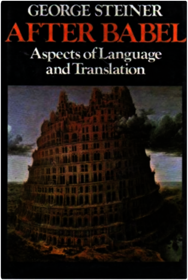
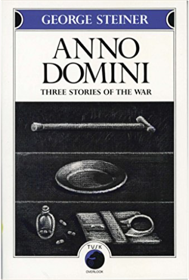
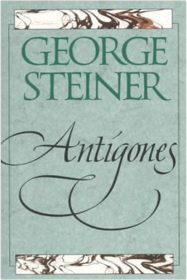
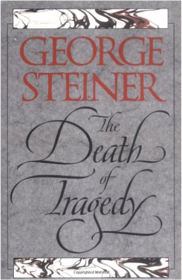
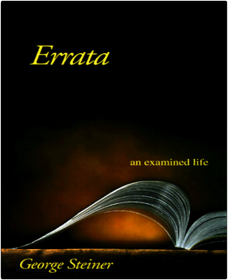
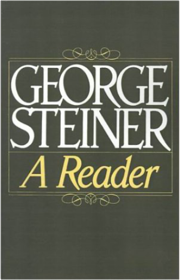
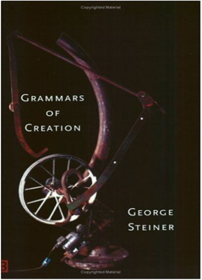
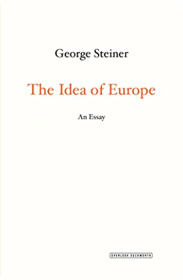
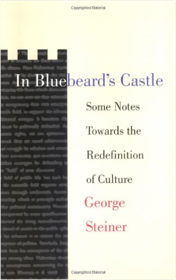
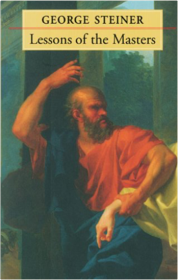
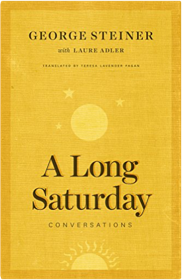
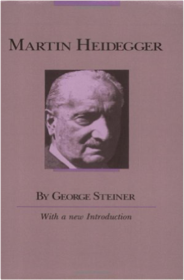

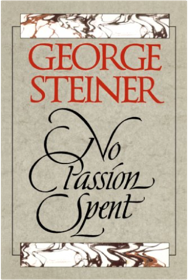
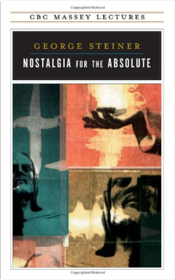
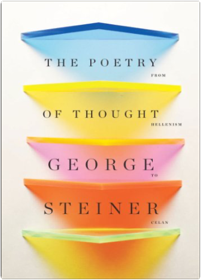
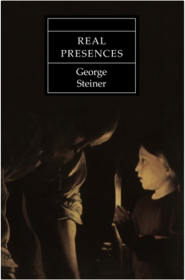
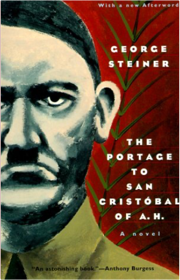
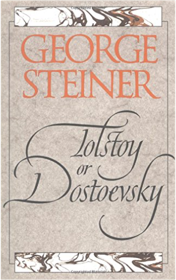




 Made with Delicious Library
Made with Delicious Library